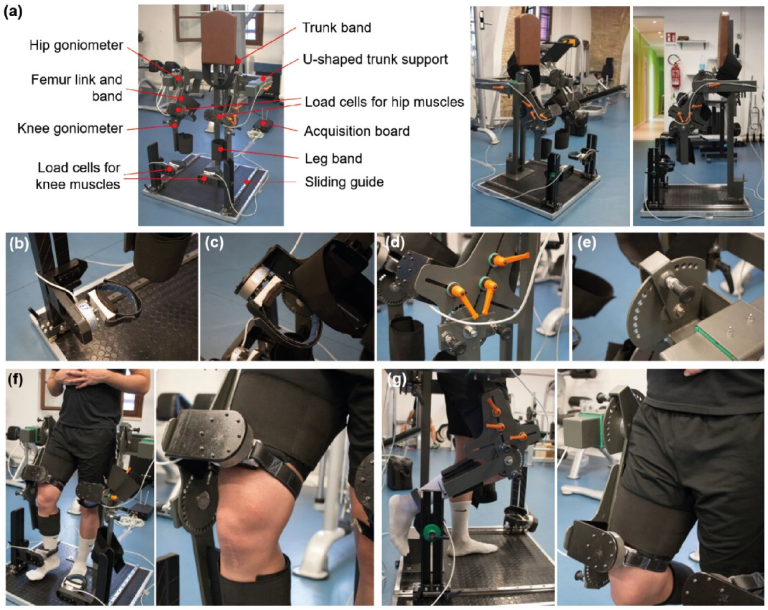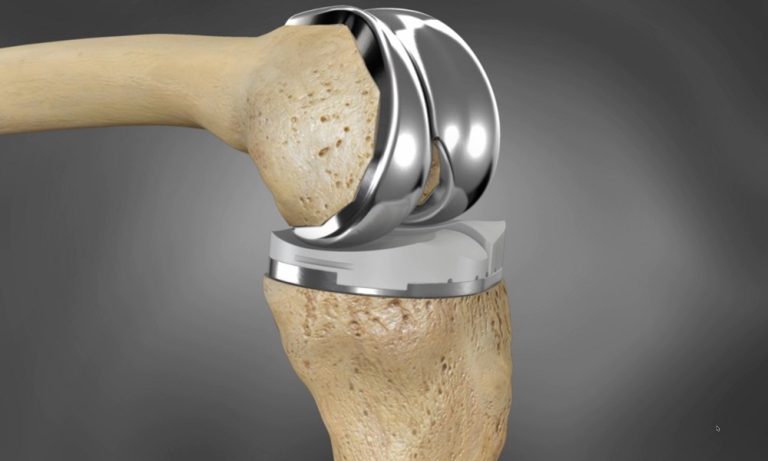Unlocking Joint Mobility: Discover the Newest Knee Injections
Welcome to the world of cutting-edge medical advancements in knee pain relief! Are you tired of living with the constant ache and limited mobility caused by arthritis?
Well, we have some excellent news for you. The latest breakthrough in medical technology comes in the form of knee injections that offer revolutionary viscosupplementation for arthritis sufferers.
But that’s not all – these injections are delivered with unparalleled precision, thanks to digital motion x-ray technology. Even better, you won’t have to break the bank to experience this incredible treatment, as Medicare and insurance cover the cost.
Intrigued? Read on to discover more about the mesmerizing world of the newest knee injections.
newest knee injections
The newest knee injections involve viscosupplementation treatment for knee arthritis. These injections utilize digital motion x-ray technology to deliver medication with precision accuracy.
Medicare and many insurance companies cover the cost of this treatment. While corticosteroid injections are recommended for their effectiveness in reducing symptoms, hyaluronic acid injections may not provide significant relief for knee pain.
Prolotherapy, PRP injections, and placental tissue matrix injections have mixed results and limited evidence of effectiveness. Botox injections and fluid aspiration are potential treatments but require further research.
It is important to note that knee injections do not cure the underlying issue causing knee pain. Physical therapy is often recommended after knee injections to improve mobility and strengthen surrounding muscles.
Key Points:
- Newest knee injections involve viscosupplementation treatment for knee arthritis and utilize digital motion x-ray technology for precise medication delivery.
- Medicare and many insurance companies cover the cost of this treatment, although hyaluronic acid injections may not provide significant knee pain relief.
- Prolotherapy, PRP injections, and placental tissue matrix injections have mixed results and limited evidence of effectiveness.
- Botox injections and fluid aspiration are potential treatments but require further research.
- Knee injections do not cure the underlying issue causing knee pain.
- Physical therapy is often recommended after knee injections to improve mobility and strengthen surrounding muscles.
Sources
https://www.verywellhealth.com/injections-for-knee-pain-5093143
https://www.news-journalonline.com/story/sponsor-story/ethos-health-group/2021/02/11/medicare-approved-new-technology-knee-arthritis-treatment/4448933001/
https://orthoinfo.aaos.org/en/treatment/viscosupplementation-treatment-for-knee-arthritis/
https://www.opnews.com/2021/10/new-hydrogel-injection-for-knee-osteoarthritis-offers-patients-a-return-to-mobility-without-surgery/17196
Check this out:
💡 Pro Tips:
1. Consider physical therapy as a post-injection treatment to improve mobility and strengthen the surrounding muscles.
2. Be aware that knee injections do not cure the underlying issue causing knee pain; they only provide temporary relief.
3. Keep in mind that Medicare and many insurance companies cover the cost of viscosupplementation treatment.
4. Discuss with your healthcare provider the potential effectiveness of corticosteroid injections in reducing knee pain symptoms.
5. Be cautious about relying on hyaluronic acid injections for significant relief of knee pain, as they may not provide the desired results.
Precision Delivery With Digital Motion X-Ray Technology
The latest advancements in knee injections have revolutionized the treatment of knee arthritis. With the introduction of digital motion x-ray technology, injections are now delivered with unparalleled precision accuracy.
This cutting-edge technology allows healthcare professionals to visualize the joint in real-time and determine the most optimal placement for the injection.
The digital motion x-ray technology provides a dynamic view of the knee, capturing images at various angles and positions. This enables physicians to identify any abnormalities or areas of concern that may require targeted treatment.
By ensuring precise needle placement, this technology enhances the effectiveness and efficiency of knee injections, leading to improved patient outcomes.
Insurance Coverage For Viscosupplementation Treatment
One of the most appealing aspects of the newest knee injections is that they are covered by Medicare and many insurance companies. This means that individuals suffering from knee arthritis can receive viscosupplementation treatment at a fraction of the cost or sometimes even for free.
This insurance coverage allows patients to benefit from this innovative treatment without the burden of financial constraints. By providing access to this cutting-edge therapy, insurers are recognizing the value and effectiveness of knee injections in improving the quality of life for those with knee arthritis.
Complimentary Knee Pain Consultation Offered
The Ethos Health Group, a leader in musculoskeletal healthcare, understands the importance of personalized care. That is why they offer a complimentary one-on-one knee pain consultation to individuals seeking relief from their knee arthritis symptoms.
This consultation allows patients to discuss their concerns, ask questions, and explore the various treatment options available.
During the consultation, experienced healthcare professionals will evaluate the patient’s condition, assess their specific needs, and recommend the most appropriate course of action. This personalized approach ensures that each patient receives tailored treatment that is customized to their unique requirements, leading to optimal results.
Corticosteroid Injections As Effective Symptom Reducer
When it comes to reducing symptoms associated with knee arthritis, corticosteroid injections have proven to be highly effective. These injections contain a powerful anti-inflammatory medication that helps alleviate pain, reduce swelling, and improve joint function.
The corticosteroid works by suppressing the immune response that causes inflammation in the knee joint.
Studies have shown that corticosteroid injections provide significant pain relief and improve knee function for individuals with knee arthritis. These injections offer a quick and efficient solution for managing symptoms, allowing individuals to regain their mobility and engage in daily activities with greater ease.
Limited Relief From Hyaluronic Acid Injections
While hyaluronic acid injections have been popular in the past, recent research suggests that they may not provide significant relief for knee pain associated with arthritis. Hyaluronic acid is a natural substance found in the body that helps lubricate and cushion the joints.
The idea behind these injections is to restore the balance of natural joint fluid in the knee.
However, studies have shown mixed results regarding the effectiveness of hyaluronic acid injections. Some individuals experience short-term pain relief, while others do not notice any significant improvement.
It is important to note that the response to hyaluronic acid injections may vary from person to person, and further research is needed to determine their long-term efficacy.
Mixed Results And Limited Evidence For Alternative Knee Injections
Aside from corticosteroid and hyaluronic acid injections, alternative knee injections such as prolotherapy, PRP injections, and placental tissue matrix injections have gained attention in recent years. However, the evidence supporting their effectiveness remains limited, and results have been mixed.
Prolotherapy involves injecting a solution that stimulates tissue healing and growth, while PRP injections use the patient’s own platelet-rich plasma to promote healing. Placental tissue matrix injections utilize the regenerative properties of placental tissue to enhance tissue repair.
While some individuals may experience relief from these treatments, the overall scientific evidence supporting their efficacy is still limited.
Additional research is needed to fully understand the benefits and limitations of these alternative knee injections. As with any medical treatment, it is essential to consult with a healthcare professional to determine the most appropriate course of action based on individual circumstances and medical history.
Unveiling Promising Potential: Botox Injections and Fluid Aspiration
While further research is required, there are promising indications that Botox injections and fluid aspiration may hold potential as treatments for knee osteoarthritis. Botox injections, commonly known for their cosmetic applications, have shown preliminary success in reducing pain and improving function in patients with knee arthritis.
Fluid aspiration, on the other hand, involves removing excess fluid from the knee joint. This procedure can provide temporary pain relief and alleviate discomfort caused by swelling and inflammation.
However, more comprehensive research is needed to determine the long-term effects and benefits of these treatments.
Knee Injections: A Piece of the Puzzle
It is crucial to keep in mind that knee injections do not cure the underlying issue causing knee pain. While these injections provide symptomatic relief, they do not address the root cause of knee arthritis.
Therefore, a holistic approach to knee health is recommended.
In conjunction with knee injections, physical therapy is often recommended to individuals with knee arthritis. Physical therapy focuses on improving mobility, strengthening the surrounding muscles, and promoting proper alignment and movement patterns.
By combining knee injections with targeted exercise and therapy, individuals can achieve optimal joint health and mobility.
In conclusion, the newest knee injections, such as viscosupplementation treatment, offer hope and relief for individuals suffering from knee arthritis. By utilizing digital motion x-ray technology, healthcare professionals can deliver injections with exceptional precision.
Insurance coverage for these treatments ensures wider accessibility to patients. However, it is important to consult healthcare professionals and gather comprehensive information to determine the most suitable treatment option based on individual needs and preferences.
Unlocking joint mobility is a journey that requires a multi-faceted approach, and knee injections are just one piece of the puzzle.





